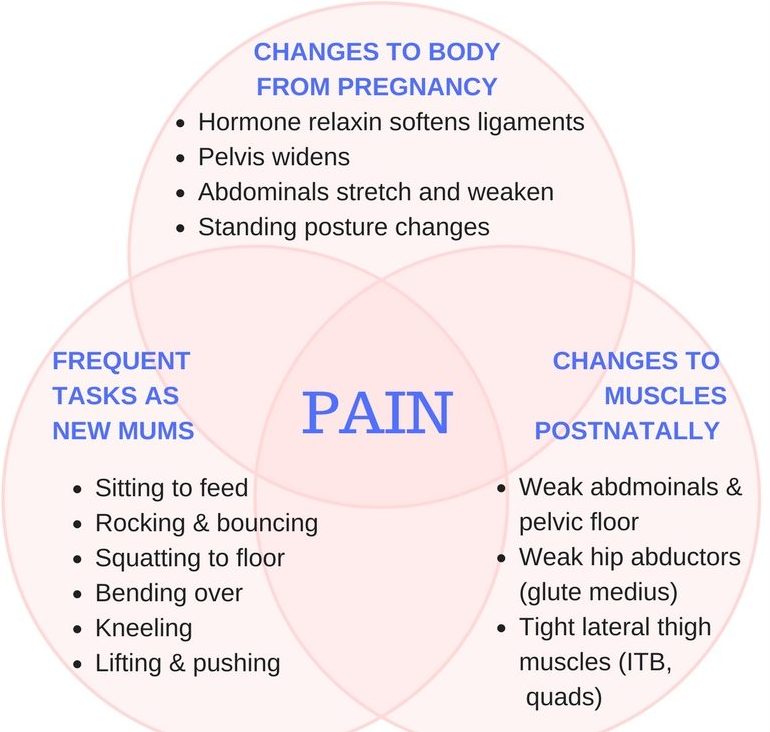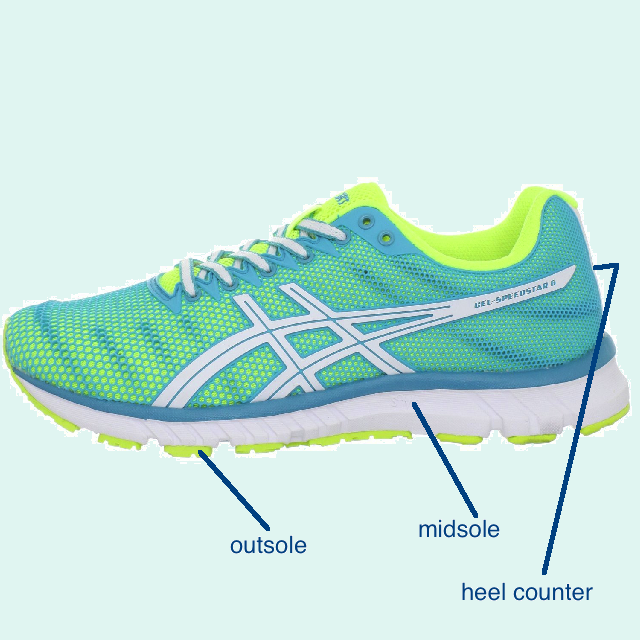We know that pregnancy and new motherhood can take a serious toll on the body. Cracked nipples, back pain, tummy separations and urinary incontinence are just some of lovely things we do our best to avoid! Something many new mums don’t expect to experience however is knee pain. Despite this, it is one of the most common pain complaints I see as a physio who treats post-natal women. As with many things that are ‘common’, post-natal knee pain is not something you need to just put up with! So I will do my best to explain what it is, why it happens and what you can do to help…
Why do my knees hurt?
The most common type of knee pain in new mums is caused by a condition known as patello-femoral pain sydrome, which basically means ‘pain under the knee cap’. PFPS is felt mostly at the front of the knee – usually under or around the sides of the kneecap. In new mums, knee pain is usually caused by a combination of three main factors:
 The changes your body goes through during pregnancy
The changes your body goes through during pregnancy
- The hormones released during pregnancy cause your ligaments to soften and pelvis to widen to make room for the baby
- Your abdominals are stretched during pregnancy & gradually weaken
- Your posture will usually change to include an increased curve in your lower back or a ‘sway back’ which puts your abdominals and gluteals in a poor position to work
The muscle imbalances that often occur as a result of pregnancy
- Weaker abdominals (transversus, rectus abdominis and obliques)
- Weaker hip abductors & extensors (gluteals)
- Tighter lateral thigh muscles like iliotibial band and lateral quadriceps
The types of activities you do as a mum places a lot of excess load through the patello-femoral joint
- Sitting to feed / nurse involves your knees being in flexion for a long period of time
- Rocking and bouncing to settle your baby usually involves lots of weight shift and mini-squats
- Squatting to the floor and kneeling to pick bub up and down off the floor / bouncer places a lot of load through your knee joints and challenges the length of your quadriceps
- Lifting capsules and pushing prams (especially uphill/stairs) increases the load through the knee joints by a significant amount compared to just moving your own body weight.
So what should I avoid doing if I have knee pain?
Now realistically, there are many things as new mums you simply can’t avoid (like most of the things on the list above!) But it’s important to remember that knee pain after pregnancy is unlikely to get better if you ignore it or if just ‘push through’ it! Some of the main activities that you should keep an eye on are:
- squats or lunges, especially with weight (dumbbells or baby!)
- walking up / down hills or stairs, especially with the pram
- excessive kneeling
If you notice an association between how much you do these things and your knee pain, it is worth modifying / minimising these activities for a while to see if the pain improves.
What can I do to help improve my knee pain?
Minimising aggravating movements is a really good start, but it is not usually sufficient to get rid of your pain altogether. You should try to:
Get help
To address the main issues contributing to your pain you must first identity them! A good physiotherapist who has experience working with post-natal women will be able to help you. The factors that are contributing to your knee pain might be quite different to those contributing to your friend’s knee pain…
Improve any muscle imbalance
I usually give my mums with knee pain a few exercises to help address their own individual imbalances. These might include stretches or muscle release techniques for ‘tight’ muscles, and strengthening exercises for weak muscles. Here is a short video of a few exercises I commonly prescribe for post-partum knee pain:
Change up your technique
As your muscles get stronger you should notice your pain beginning to improve, however certain exercises can still aggravate your knees. If you get pain on squats for example, try putting a ball between your knees and squeezing as you squat to engage some of your pelvic stability muscles. Or have another look at your knee position and try changing up your alignment to see if that helps:

Wear good shoes
Shoes that have adequate cushioning and arch support will help to keep your knees in good alignment. This can be a ‘quick fix’ for some women, so if you spend a lot of time barefoot or in thongs, try wearing your runners a bit more and see if this reduces your pain!

So, whilst knee pain in new mums is really common, it is not normal and shouldn’t be put up with.
If you’re struggling with post-partum knee pain, get in touch! My aim is to help you to make big improvements with a few small changes so that you can get on with life!
Recommended reading from Glow
4 Life Lessons I’ve learned as a Working Mum
3 tips for better pram pushing
3 tips for a better breastfeeding position
